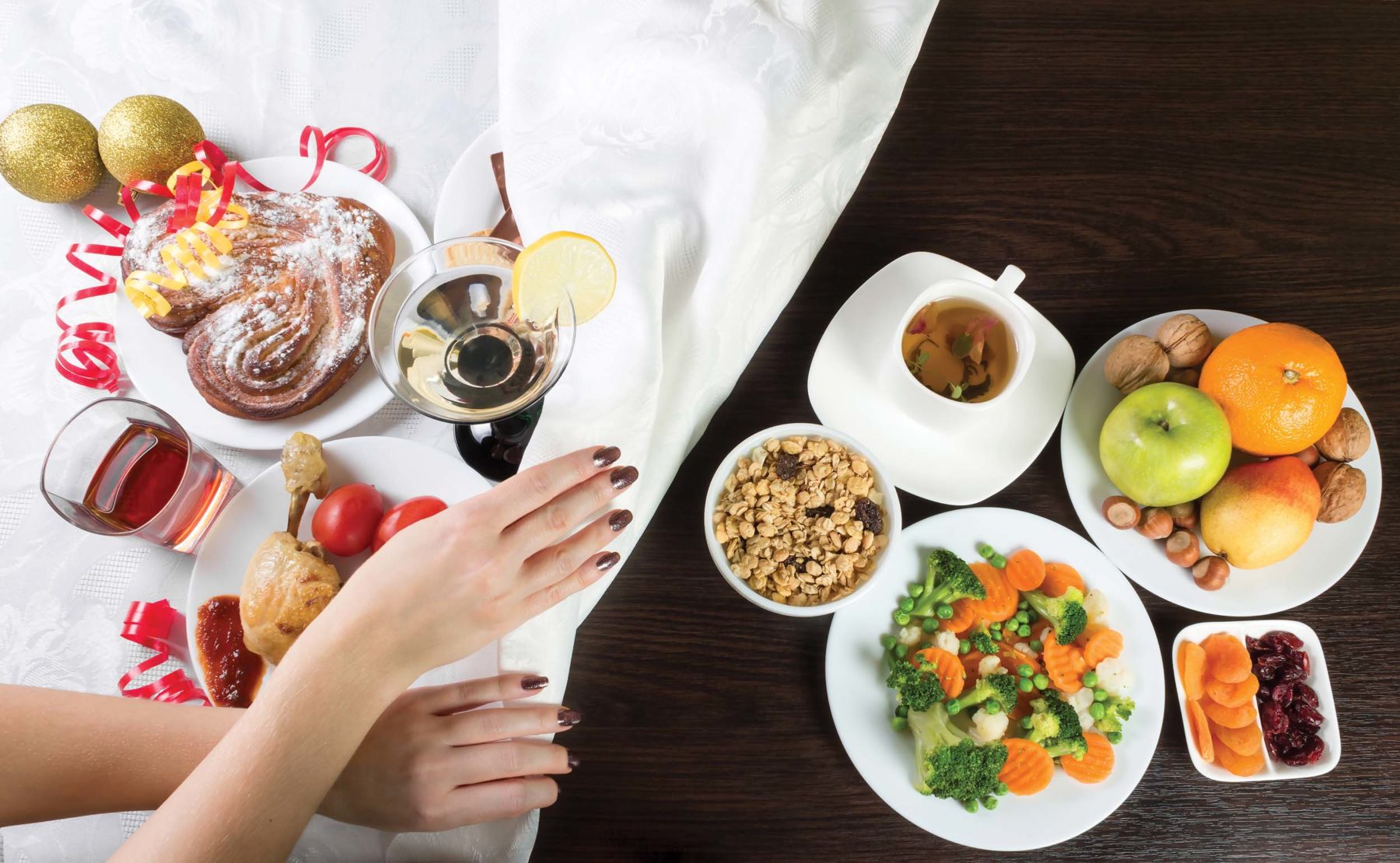Put Food Shame to Bed

The fall and winter holidays mark a time of changing weather, sparkling decorations, family time and feasts. However, people struggling with self-image and a positive relationship with food may find the family gatherings a place of discomfort, anxiety and guilt, also known as food shame.
What is food shame?
Food shame is the culturally imposed feeling of guilt one experiences after eating, especially after eating large portions or “unhealthy” foods.
“It’s problematic because you’re human and you need to eat, period,” professional counselor Amy Oliver shares. “When we connect that shame and worth with food, it becomes a real big driver in weight cycling, weight gain and other unhealthy relationships with food, including eating disorders.”
Oliver runs her own private practice, Bluebell Counseling, where she specializes in social anxiety, self-esteem and eating disorders. With increased social interaction and food presence, Oliver warns against the effects of food shame and offers insightful tips to encourage body positivity.
“Body image is important because we all have bodies,” Oliver says. “It affects how we interact with people, and it’s also a part of self-esteem – it is a part of who we think we are and our understanding of ourselves.”
Where does food shame come from?
Oliver explains that body image becomes a problem when it begins to consume one’s waking thoughts and people begin to define themselves by their body. Women often experience insecurity and shame over their bodies and food more than men because women psychologically tend to be more relational than men. Oliver connects two major aspects that influence body image: media and human nature.
Oliver says that the commercial world pressures many to believe that we should not be content or happy with our current selves. Many of those that find themselves scrolling through social media sites such as Instagram or Twitter often encounter influencers or ads endorsing a supplement, a weight-loss method, or another product that claims to change one’s appearance. However, only a small percentage of women can naturally achieve the commercialized and advertised body. A 2016 study revealed that the average American women’s clothing size fell between a misses size 16-18 or a women’s plus size 20W. Furthermore, Oliver remarks that an intrinsic aspect of human nature is the need to be socially accepted.
“If you think back to caveman days, if you were ousted from the tribe, you died,” Oliver says. “It’s very engrained biologically in us to need to be accepted; anything that threatens that is going to be hard [to overcome].”
How do the holidays affect food shame? How do we cope?
The holidays bring insecurity, conflict and other feelings to the forefront. Family gatherings means cooking and eating large meals, catching up with those you might encounter only once a year, and, unfortunately, dealing with the judgments and perceptions of others.
“If you’re already feeling insecure about your body or about your relationship with food, it’s going to be really hard to be around that much stimulation,” Oliver says. “There is all of that anticipation of ‘what I’m going to hear,’ ‘what am I going to say,’ and ‘am I going to be able to control myself?'”
However, Oliver provides a handful of suggestions for promoting mindfulness and positive thinking:
- Focus on your positive traits, accomplishments and strengths
- Encourage others to remove judgment
- Avoid labeling foods as “good” and “bad” or “healthy” and “unhealthy”
- Remember that your eating during the holidays is not representative of your normal eating
- Adopt a rule of no body, weight and diet talk
- Shift thoughts to enjoying the food and nourishing yourself
- Consider how much your body does for you
“If we decide to decriminalize food, then it stops having power over us, and, then, we are able to have a more healthy, happy, normal relationship with food,” Oliver says. “Holiday food is a display of love and gratitude, not shame. Let go of judgment and be in the moment.”






